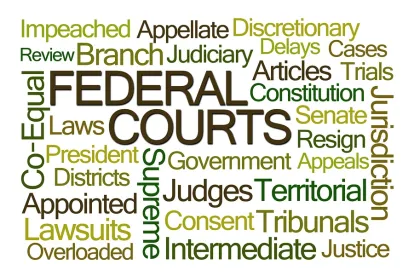In its highly anticipated decision in Salzberg v. Sciabacucchi, No. 346, 2019 (Del. Mar. 18, 2020), the Delaware Supreme Court confirmed the facial validity of a provision contained in certificates of incorporation of many companies requiring that claims under the Securities Act of 1933 (the Securities Act) be brought only in federal court and not in a state court. The decision reverses the Delaware Court of Chancery’s decision.
Such charter provisions, referred to in the opinion as Federal-Forum Provisions or FFPs, have been adopted by corporations in response to an increased number of federal securities law claims being brought in state court, where pleading and other rules are often more advantageous to the plaintiffs, as well as to address the inefficiencies of parallel state and federal litigation. 1
Under current federal law, a Securities Act claim, including a stockholder suit alleging inaccurate or incomplete disclosure in a public offering, may be brought by a private plaintiff in either federal or state court. And, if a plaintiff chooses to bring an action under the Securities Act in state court, a defendant cannot remove the lawsuit to a federal forum. 2
In reversing the Court of Chancery opinion and holding that FFPs are permitted under the Delaware General Corporation Law (DGCL), the Court relied primarily on the broad enabling nature of the DGCL: “[a]t its core, the [DGCL] is a broad enabling act which leaves latitude for substantial private ordering, provided the statutory parameters and judicially imposed principles of fiduciary duty are honored.” 3 The Court concluded that FFPs are authorized by DGCL Section 102(b)(1), which provides that the certificate of incorporation may contain “[a]ny provision for the management of the business and for the conduct of the affairs of the corporation, and any provision creating, defining, limiting and regulating the powers of the corporation, the directors, and the stockholders …. if such provisions are not contrary to the laws of this State.”
While the Court upheld the challenged charter provision, it did not define the scope of what could be included in an exclusive forum provision. The Court did distinguish between claims based entirely on “internal affairs,” such as alleged breaches by directors of their fiduciary duties, which could be subject to an exclusive forum provision, and purely external claims, such as a tort claim for personal injury by the corporation, which presumably could not be made subject to such an exclusive forum provision.
However, the Court also contemplated a middle category of claims, arising from internal corporate conduct but not based purely on internal affairs, that could also be valid subjects for an FFP under the authority of DGCL Section 102. These types of claims, which the Court defined as “intra-corporate claims,” apparently include Securities Act claims where the corporation’s board has responsibility for the challenged disclosures and the disclosures can impact stockholders. But the scope of potential FFP-governed intra-corporate claims remains unclear.
For those corporations that have an FFP in their charter, this decision supports the validity of the provision, at least to the extent it is narrowly drafted and applies only to claims where director conduct impacts stockholders or their rights. However, plaintiffs may still challenge the implementation of such provisions on grounds left open by the Court. For those companies as well as boards considering whether to adopt an FFP, the board should consider both this opinion and how the corporation’s investors (as well as proxy advisers such as Institutional Shareholder Services (ISS) and Glass Lewis) may respond.
For example, Glass Lewis has stated that exclusive forum provisions are generally not in stockholders’ interests when adopted without a stockholder vote. Similarly, ISS will evaluate such provisions on a case-by-case basis to determine whether they adversely affect stockholders’ rights.
Although the Delaware Supreme Court’s decision rules on the facial validity of FFPs, it leaves much uncertainty for boards considering the issue. The decision is predicated upon the validity of FFPs in charter provisions, and did not reach whether such a provision could be adopted in a bylaw, even one adopted with a stockholder vote. 4 Additionally, there is some question as to whether other states will defer to an exclusive forum provision with respect to a lawsuit filed in their jurisdiction, notwithstanding the Delaware opinion.
Also, some commentators have noticed that the Court’s analysis of the intermediate “intra-corporate affairs” category could perhaps be applied to justify a charter provision that would mandate arbitration of such claims, which by statute is not permitted for claims based purely on internal affairs. This raises the possibility that a Delaware corporation could include in its certificate of incorporation a provision mandating arbitration of at least some securities laws claims, and therefore limit the availability of a class action for the plaintiffs in such claims.
In conclusion, Salzberg v. Sciabacucchi is an important decision as it reinforces the broad enabling power of the DGCL and parties’ ability to structure their relationship through private ordering. However, exactly how far parties can stretch that authority is left unresolved, at least for now.
-
In the decision, the Delaware Supreme Court included an example of an FFP as follows:
Unless the Company consents in writing to the selection of an alternative forum, the federal district courts of the United States of America shall be the exclusive forum for the resolution of any complaint asserting a cause of action arising under the Securities Act of 1933. Any person or entity purchasing or otherwise acquiring any interest in any security of [the Company] shall be deemed to have notice of and consented to [this provision].
-
See 15 U.S.C. § 77; Cyan, Inc. v. Beaver Cty. Emps. Ret. Fund, 138 S. Ct. 1061, 1066 (2018).
-
Salzberg v. Sciabacucchi, No. 346, 2019 (Del. Mar. 18, 2020), at *15.
-
Note that the Court stated “a bylaw that seeks to regulate the forum in which such ‘intra-corporate’ litigation can occur is a provision that addresses the ‘management of the business’ and the ‘conduct of the affairs of the corporation,’ and is, thus, facially valid under Section 102(b)(1).” Id. at *11. However, when discussing policy matters and the logic underlying the validity of traditional contractual forum-selection clauses, the Court also reiterated that “FFPs, as charter provisions, must be subject to, and approved by a vote of the stockholders.” Id. at *45. As a general matter, forum selection bylaws (even when adopted by the board and without a stockholder vote, if permitted by the corporation’s governing documents) have been deemed permissible under Delaware law. See DGCL §§ 109, 115.





 />i
/>i

